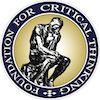CT701: How to Infuse Critical Thinking Into Your Instruction [Part II - Advanced Course] - Fall 2018
This course builds upon understandings learned in CT700 (hence, CT700 is a prerequisite for this course). Our approach to critical thinking is designed to transform teaching and learning at all levels; it is based on the concepts and principles embedded in a substantive conception of critical thinking. The purpose of the course is to help instructors continue to internalize the intellectual tools they need if they are to foster intellectual skills, abilities, and characteristics in student thought.
In this course, we emphasize the importance of fostering a substantive conception of critical thinking. Such a conception not only highlights the qualities of the educated person, but also implies proper design of the educational process. There are essential, minimal conditions for cultivating educated minds. These entail modes of instruction that foster development of the intellectual standards, abilities, and traits of the educated person.
As an outcome of this course, you will develop skills in:
- Developing effective strategies for fostering fairminded critical thinking in instruction.
- Leading more advanced Socratic dialog.
- Deepening your understanding of the foundations of critical thinking.
- Understanding the relationship between critical thinking and your own instruction
- Beginning to outline a Thinker's Guide to Critical Thinking within your field of study (showing proficiency in understanding the relationship between critical thinking and your field).
- Understanding more deeply the concepts of close reading and substantive writing, in order to better foster these understandings in student thought.
- Placing a robust conception of fairminded critical thinking at the heart of teaching and learning, including an explicit emphasis on the development of intellectual virtues.
- Understanding the roles played by native human pathologies of thought in impeding intellectual development.
- Redesigning lessons with critical thinking at the heart of the teaching and learning process.
- Designing instructional assessment processes that dovetail with fostering critical thinking at every moment in teaching and learning.

$942.00
